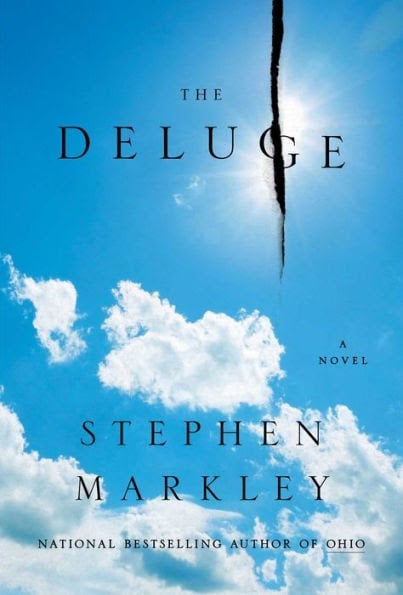Into the Obscuradrome #20
Hello. I’m Bob Pastorella, co-host of the This Is Horror podcast, website manager for This Is Horror, and writer. I’m the author of Mojo Rising, They’re Watching (with Michael David Wilson), and have numerous short-stories and non-fiction online and in print in various publications.
Embrace Change
Now that we’re in a new year, I feel emerging changes in my writing style, though to be honest, I’m probably just now noticing changes that have been happening for a while. It’s not like we find our groove and settle down, remaining in steadfast refusal to grow with time, or to ignore the pull of influence and inspiration. We can’t help but to allow what sets our hearts on fire to drive our imaginations. Without that drive, writers would write the same story over and over again, simply changing the names of the characters and locales. Or they’d do the old one-and-done and that’s it. The reality is we often do write the same story again, because we can’t let go of our obsessions. Most writers recognize this and do everything they can to make each story as different as possible, and we do this by inhaling our influences and grabbing our inspirations by the throat to make them our own.
This is growth, and it should be embraced.
Being the crotchety old bastard I am, I often do not like change. I know everything changes, often for the worse, and the most unchanging thing in the world is change, but dammit, some things need to stay the same. If it’s not broke, don’t fix it. But I also realize when it comes to creativity, embracing change cultivates growth. When I grow as a writer, I’m not abandoning my voice, I’m enhancing it with new tools. Hiding these tools under the hood comes with experience. I’m eager to try new things I’ve read, even if I didn’t like them initially.

Case in point: I’m reading The Deluge by Stephen Markley. This is a big book, nearly 900 pages, with multiple POVs, and not all of them 3rd person perspective. There’s 1st person, even 2nd person POVs in the mix, though all done properly so it doesn’t jar the reading experience. Reading this book certainly doesn’t make me want to try mixing perspectives, but there is one thing he does that I’m thinking of trying. With one set of characters, Markley presents small boxed-in asides within the narrative. I mean that exactly how it sounds … these sections are literally in an outlined rectangle presented in the narrative so you know there’s going to be something about the nature of the characters that’s meant to be read while you’re reading about the current things happening at the moment. It’s like you’re getting a little insight into the history and motivation of the character in these controlled mini-flashbacks. Markley’s certainly not the first writer to do this, but damn … I like it. It’s not gimmicky. These sections flow right into the main events effortlessly.
Markley’s writing reminds me of the late Peter Straub, who was my favorite writer. I don’t know exactly why I’m reminded of Straub, but I suspect it’s to do with Markley’s willingness to take chances with form and function in ways that aren’t gimmicky that stay true to the course. He’s doing this on a level beyond Straub, but I’d be crazy if I didn’t mention how Straub violated one of the unspoken “rules” of fiction of not starting out with a flashback. In his novel The Throat, Straub not only literally begins with a series of flashbacks, but carries the narrative in this time-before-now space for nearly 100 pages.
I mean, if you’re going to break a rule, even a silly one, then break the goddamn thing, right?
Straub does this, and the book is better for it. Markley does this as well, sprinkling these insights through-out, and the book is probably better for it. I say probably because I just started reading it and I’ve got a long way to go. But to be fair, when I saw the first box on the page, I didn’t like it. My first thought was A-HA, what superficial trickery is this? It was jarring, and out-of-place, and a little scary looking. And I didn’t realize there were going to be so many of the boxes, I thought that maybe it was just the one, which at the time was kind of forgivable.
But several … oh no.
Yet I kept reading, and reading, inhaling these nuggets of backstory, and came to relish them as the writer intended. The boxes gave Markley the ability to control the asides so that you not only recognized them, but you actually looked forward to these character insights. He parses out tidbits of backstory to foreshadow and build tension. So yeah, when I first saw it, I didn’t like it, but once I got into the groove, yeah … this works in a way that enhances the story.
Now, I’m not about to steal this idea and start fitting boxes into my narratives. But it does give me ideas how formatting could play a role in how I want to present backstory and flashbacks in the future. Maybe not just flashbacks, but perhaps some other tricky thing that I sometimes find myself at odds with. That’s what I mean by changes in style and growing as a writer: Taking advantage of new(er … or new to me) things to get a better grip on character and story. As long as the formatting is organic and not gimmicky, as long as it doesn’t take over the front seat and push the story to backseat driver status, I’m open to the idea of toying around with format. I’ve never had a problem with flashbacks since I tend to avoid them anyway, and whenever I do write one, I make sure it’s as easy as a worn slipper to step into.
I’m excited by Markley’s writing, and definitely interested in reading his other novel, Ohio, which apparently is a 500 plus page tome that happens over the course of single day. I think what I like about his writing is the stories within stories, deep-dives into character than brings them to life on the page. That’s the crux of the Straub connection as well, stories within stories, and I love that kind of writing.
It takes time to recognize how we’re changing. Not just in writing, but in life as well. Once we recognize these changes, I feel it’s best to examine them, find out why we’re changing, and then if it’s something beneficial, to embrace the change and learn how to include it in the mix in a way that’s organic and doesn’t challenge or frustrate our readers.
Embrace the changes. They may bring out the best in your writing in ways you’ve never thought of before.
___________________________________________________
Reading:
The Reformatory by Tananarive Due
The Deluge by Stephen Markley
Silent Key by Laurel Hightower
Always the Dead by Stephen J. Golds
(I’m new to Golds' work, but damn can he write. Reminds me of Jim Thompson, but with a lot of heart.)
Listening:
Discovered a new band called The OddEven. Newest album is called Darkness and this shit rocks! Sounds like Godsmack meets Alice in Chains with a slice of Ghost in the mix.
Watching:
Ghost Hunters, True Detective (S3), and I’m going to start watching Fargo. I didn’t really care for the film (I know, I know … for shame. But I’m willing to give it another chance soon.) I’ve heard really good things about the series, especially since there’s typically a semi-supernatural though thoroughly ambiguous character in each season.
Stay tuned for the next newsletter, where I’m probably going to write about how you really don’t need to explain everything in your story world.
Until then ...
peace&love
Bob
